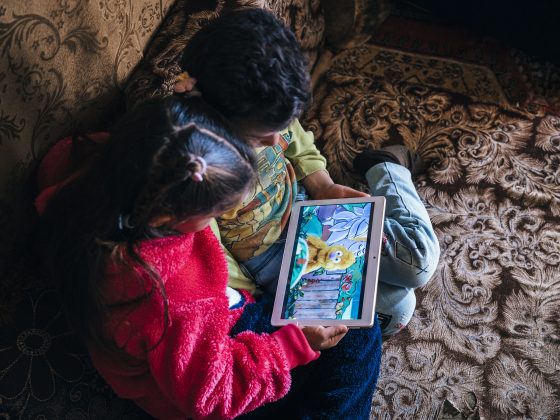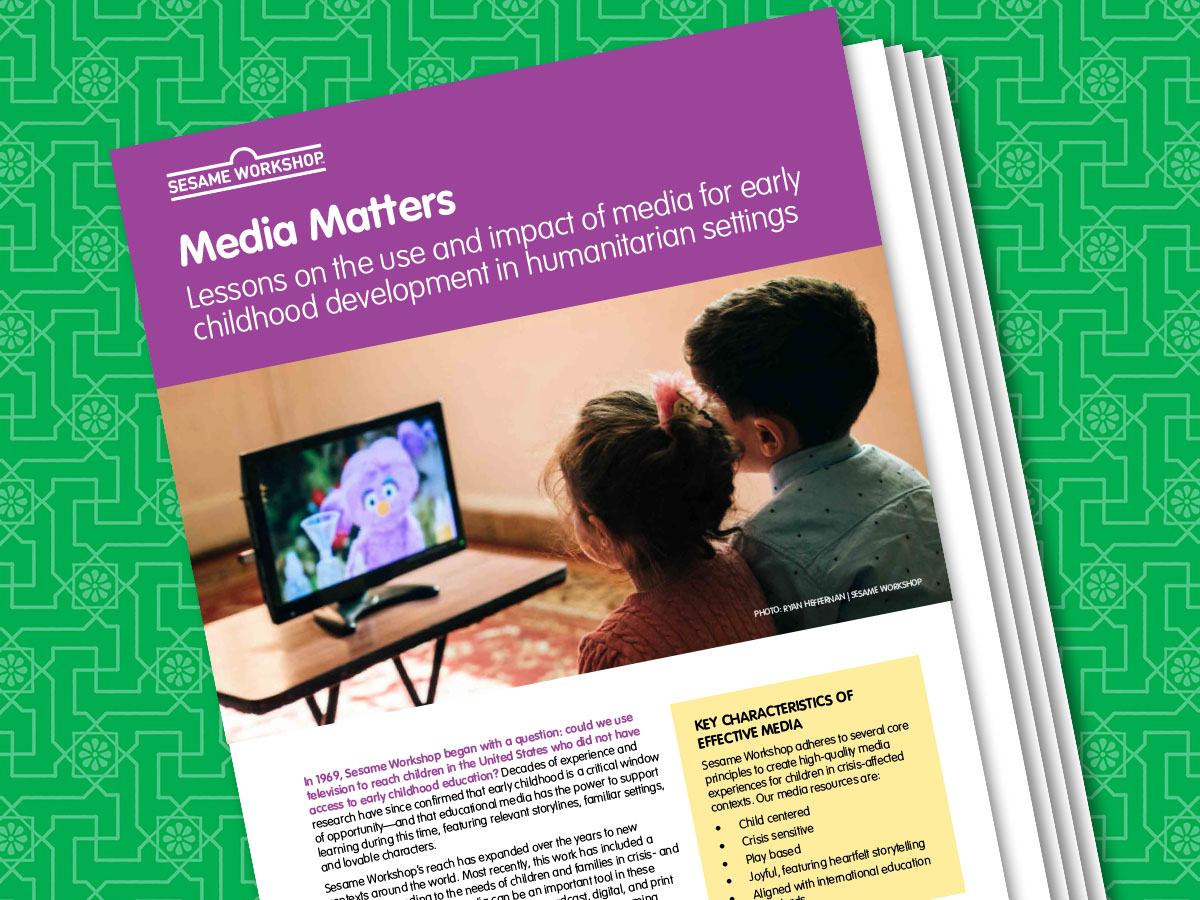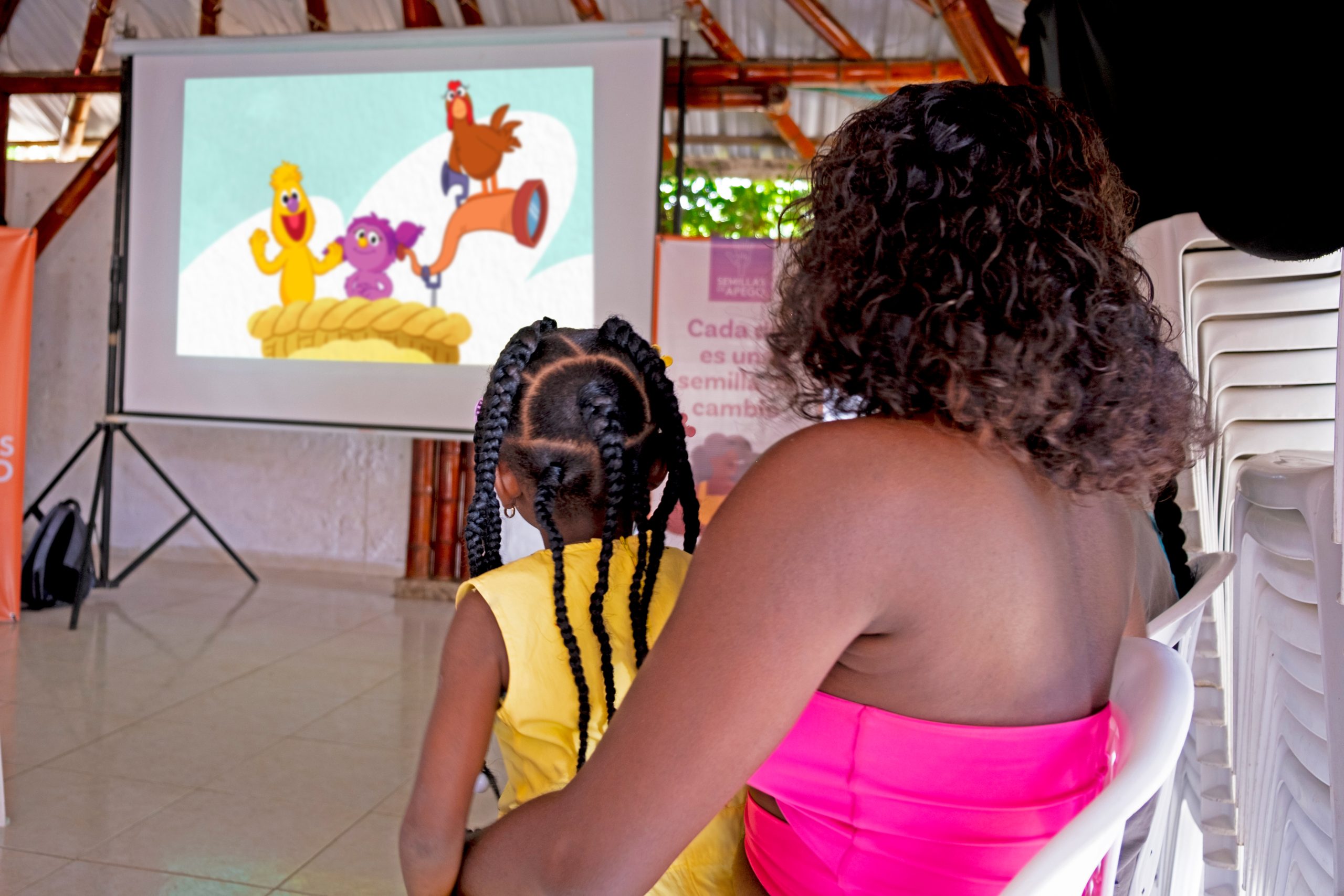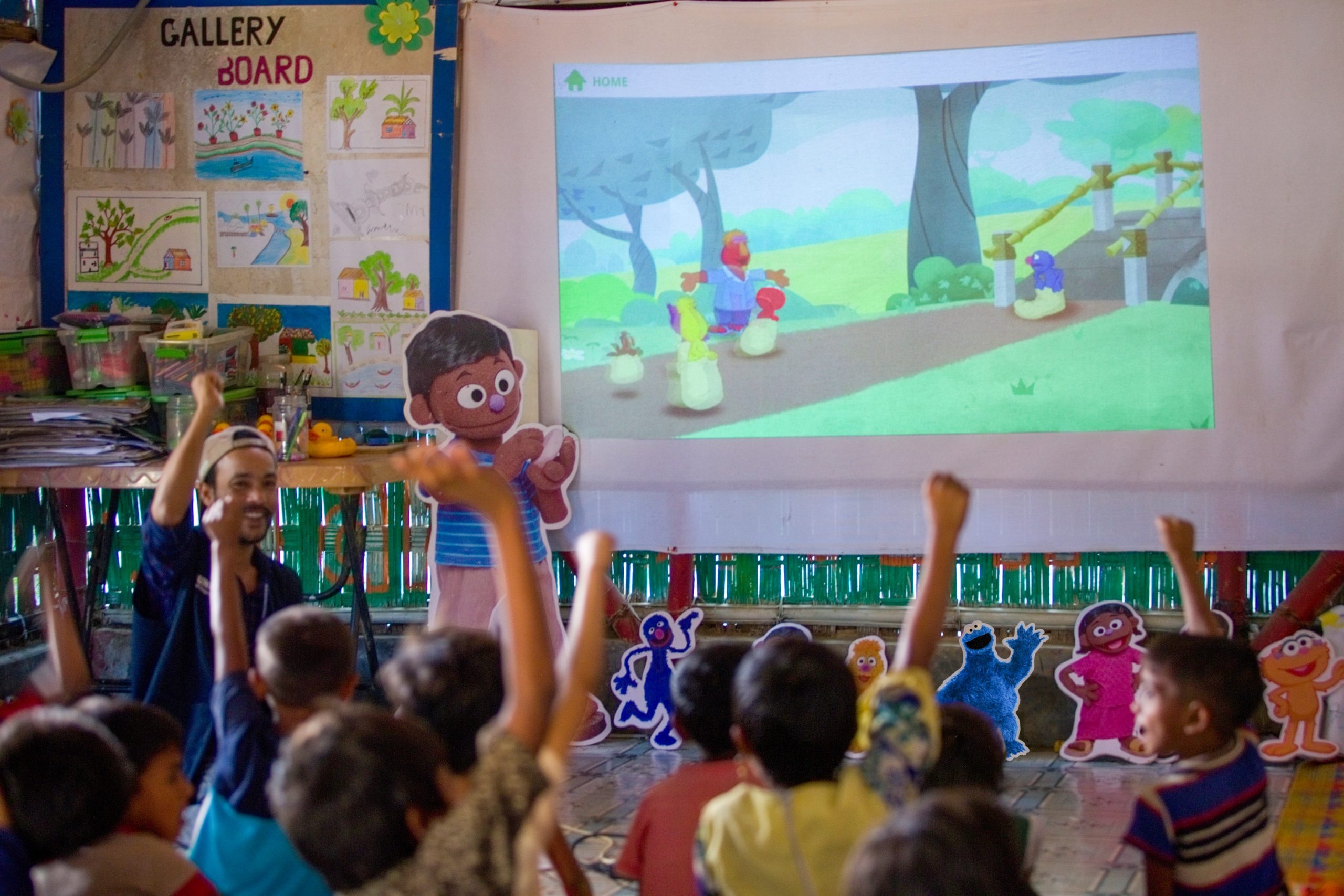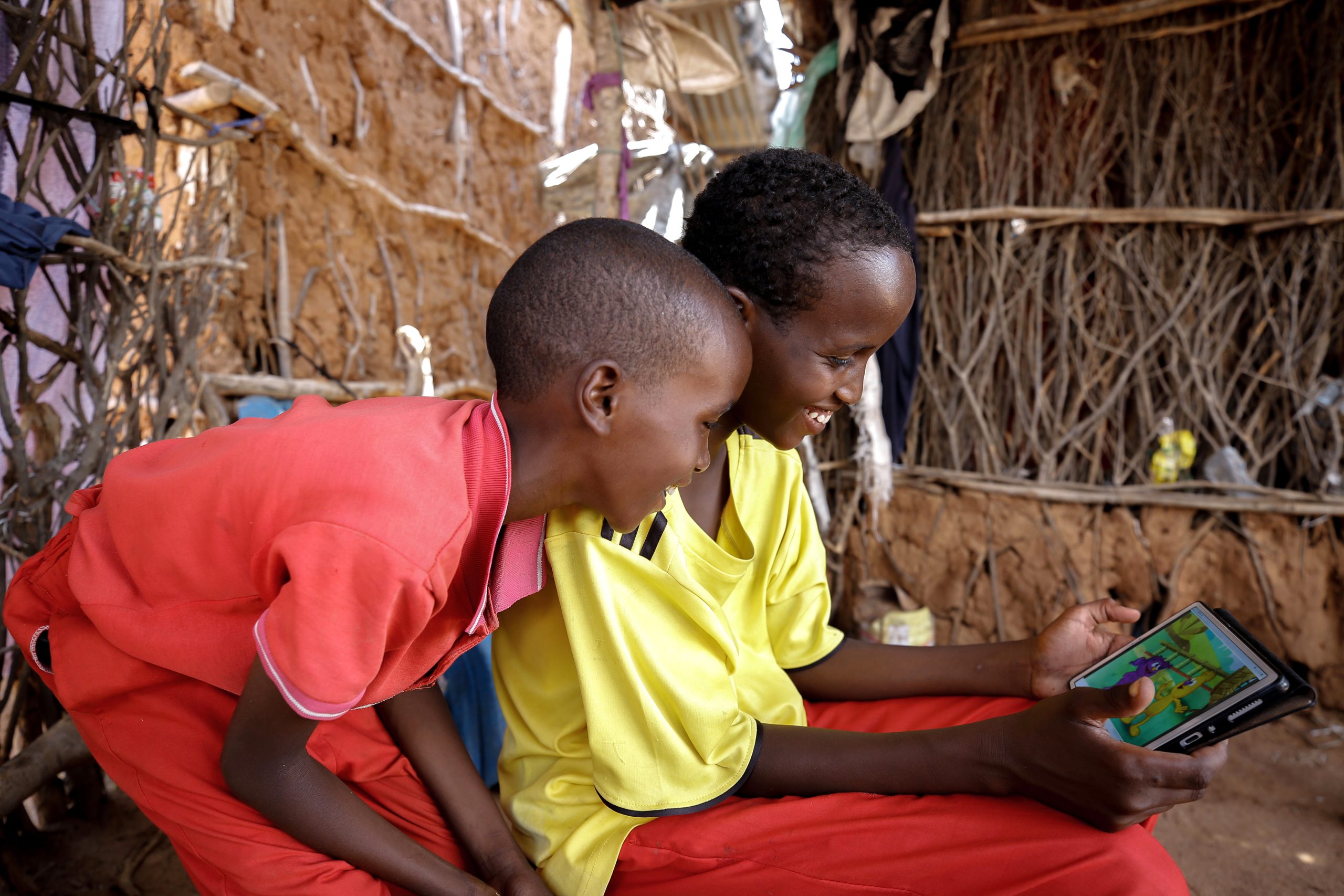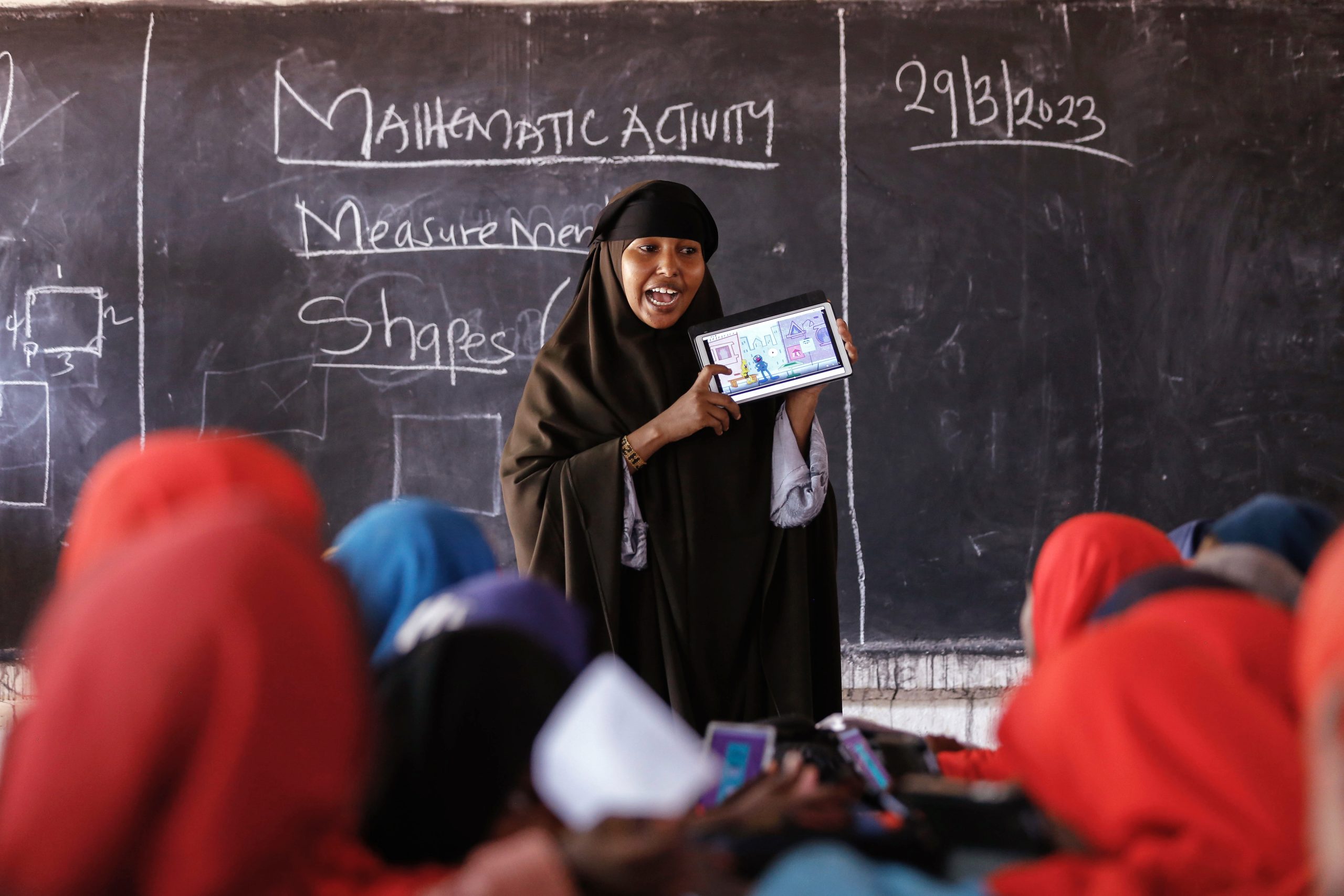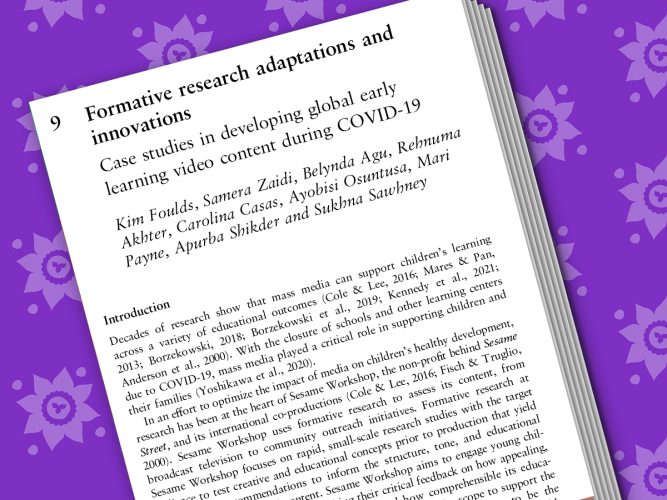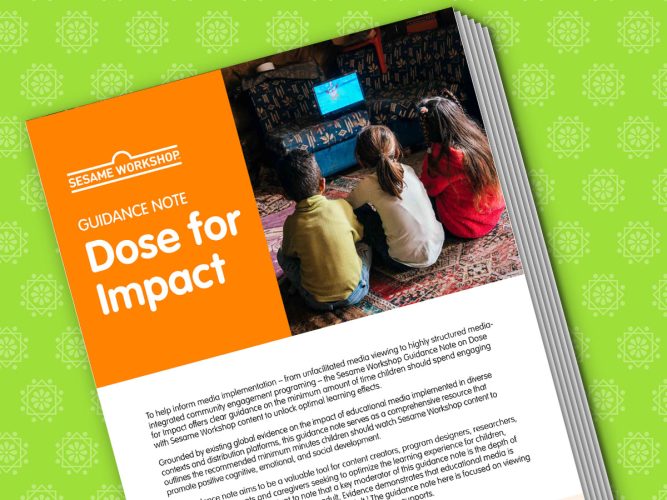For over 50 years, media has been proven to be effective at helping children learn and develop, and recent research shows that this holds true for children in crisis settings. Evidence from programs that integrated media underscore media’s ability to produce positive outcomes in foundational learning areas and socio-emotional skills for children affected by crisis.
Learn more about how media-based programs helped children affected by crisis learn.
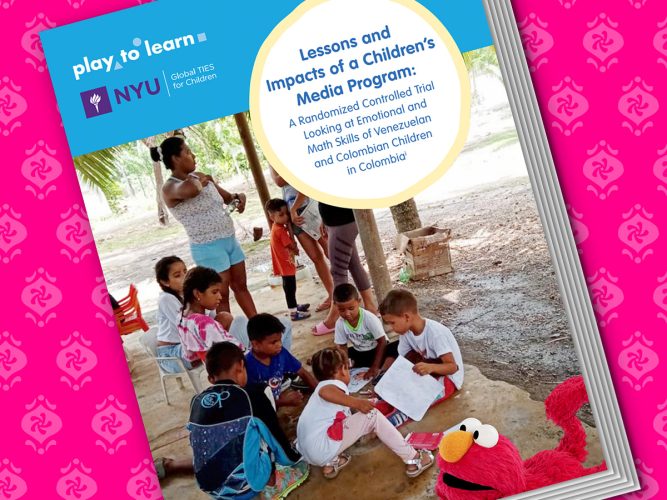
Lessons and Impacts of a Children’s Media Program in Colombia
A Randomized Controlled Trial of Emotion and Math Skills
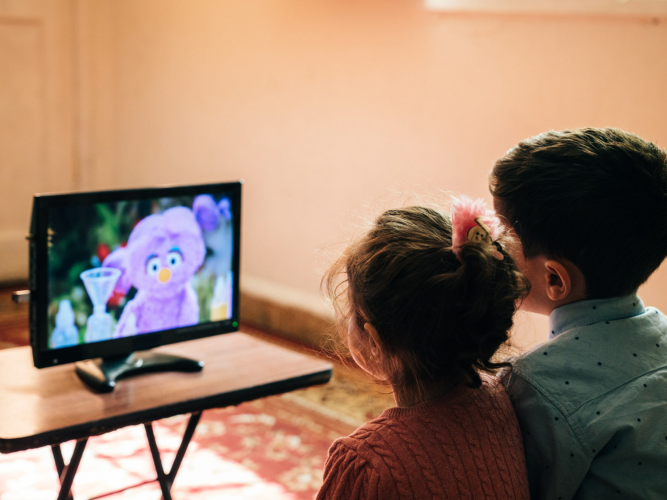
Lessons and Impacts of the Ahlan Simsim TV Program
A study in pre-primary classrooms in Jordan on children’s emotional development.
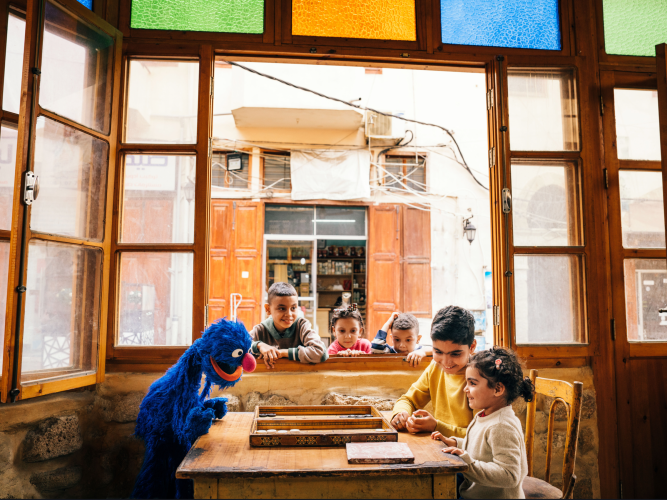
Effects of Remote Early Childhood Education
A study conducted with families in hard-to-access settings in Lebanon.
High-quality educational media and the experience of co-viewing can strengthen the bonds that help protect children and families from the effects of trauma, especially in contexts where these relationships may be compromised due to conflict or crisis.
Learn more about how co-viewing media helps children and caregivers bond and learn new skills
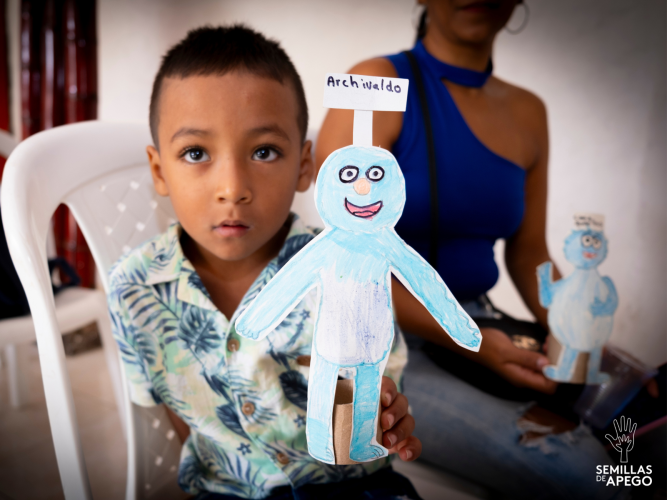
Semillas de Apego Program
Integrating Watch, Play, Learn social emotional learning (SEL) videos into Semillas de Apego’s community-based psychosocial program for caregivers of young children in communities affected by conflict, forced displacement and migration.
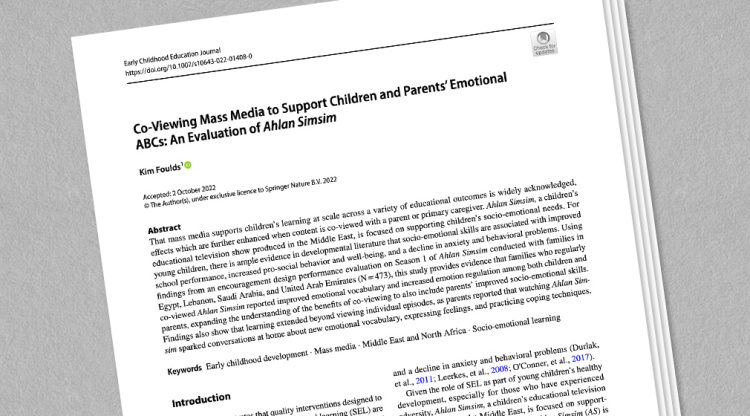
Co-Viewing Mass Media to Support Children and Parents’ Emotional ABCs: An Evaluation of Ahlan Simsim
Media can enhance access to early childhood education and support engagement, with benefits to children, caregivers and teachers and facilitators. Media-integrated remote programming in the Middle East supported populations unable to access in-person schooling. In Bangladesh, Colombia, and Kenya, in-person programs that integrated media found that, in addition to improving outcomes for young children, media also added value for caregivers, facilitators and teachers who were supporting the interventions. In some cases, media-based early childhood development programming may have a stronger impact on families who have fewer resources or are facing more adversity, helping to bridge gaps and support equity.
Learn more about how remote and direct-service programs integrated media to overcome barriers
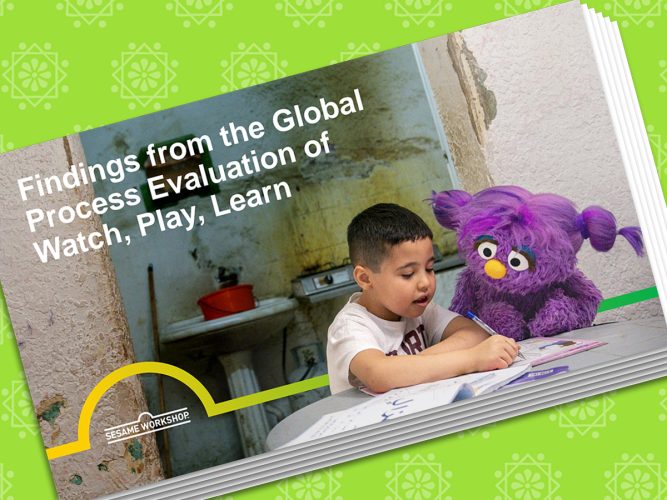
Findings from the Global Process Evaluation of Watch, Play, Learn Pilots in Bangladesh, Colombia and Kenya
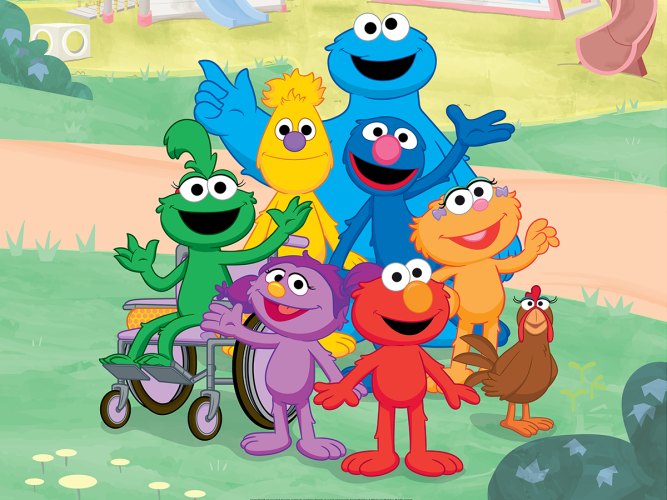
Watch, Play, Learn Early Learning Videos:
A Practitioner’s Toolkit
Bringing playful early learning to emergency contexts
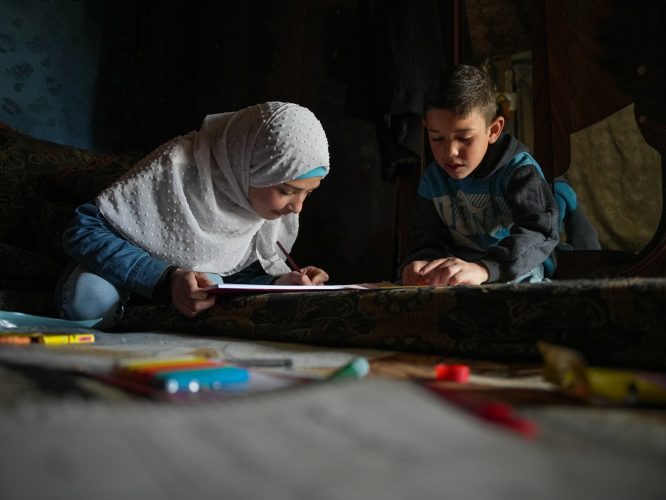
Remote Early Learning Program
Empowering caregivers to facilitate structured, play-based learning at home to prepare children age 5-6 for school.
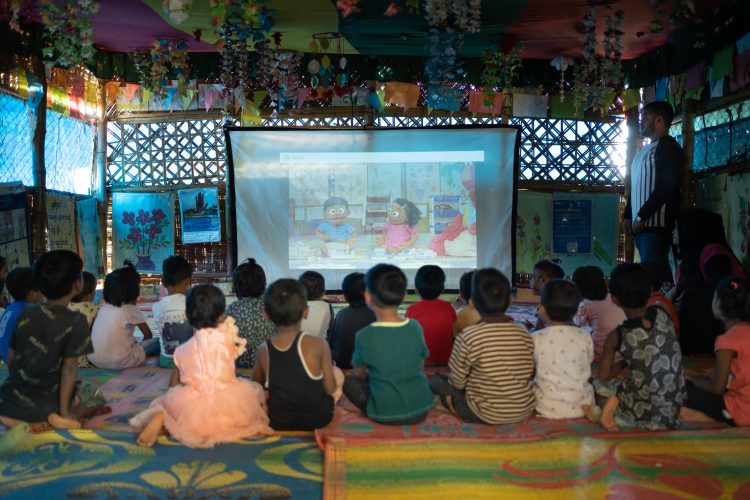
Play to Learn Highlights: Using Media and Digital Technology
Play to Learn integrated media and digital technology across programs to improve access, cultural relevance, quality, and engagement.
Leveraging widely available technologies like direct messaging apps and social media in combination with trusted and tested high-quality educational media can help those out-of-reach of many direct service programs and even traditional broadcast media.
Learn more about how media distributed through messaging apps, social media and other technologies can reach families
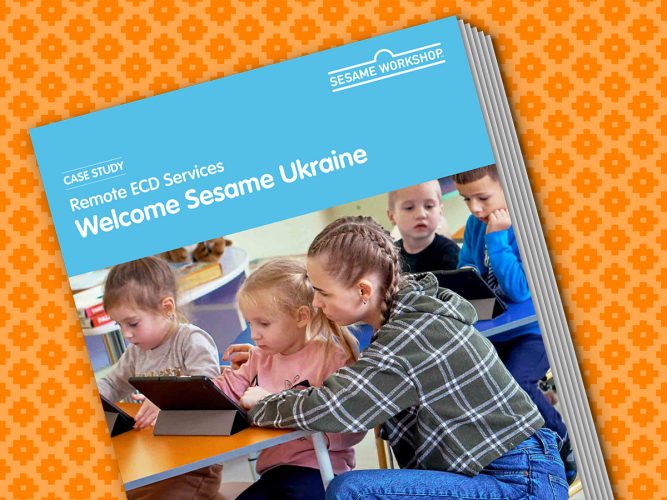
Case Study: Remote ECD Services in Ukraine
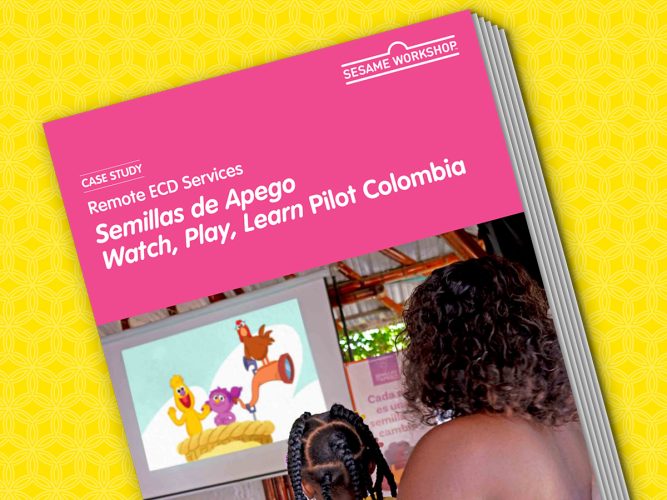
Case Study: Semillas de Apego Watch, Play, Learn Pilot in Colombia
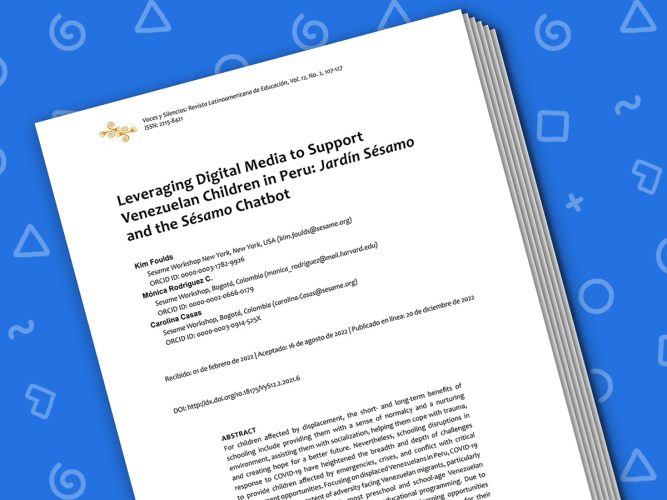
Leveraging Digital Media to Support Venezuelan Children in Peru
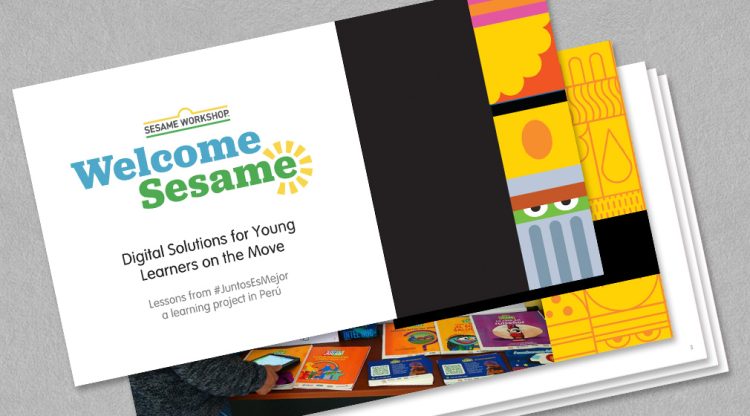
Digital Solutions for Young Learners on the Move: Lessons from #JuntosEsMejor a learning project in Perú
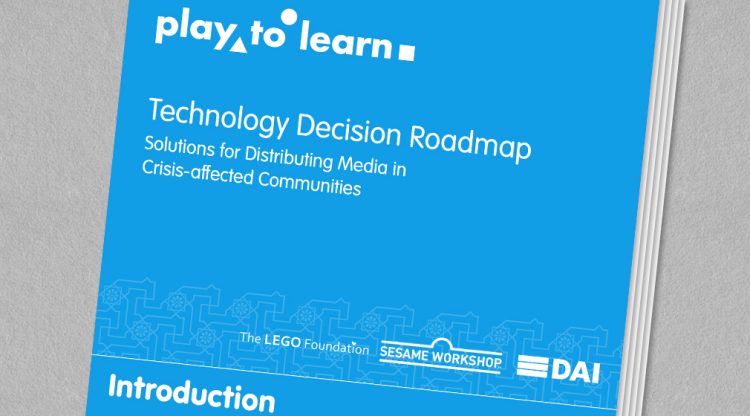
Technology Decision Roadmap
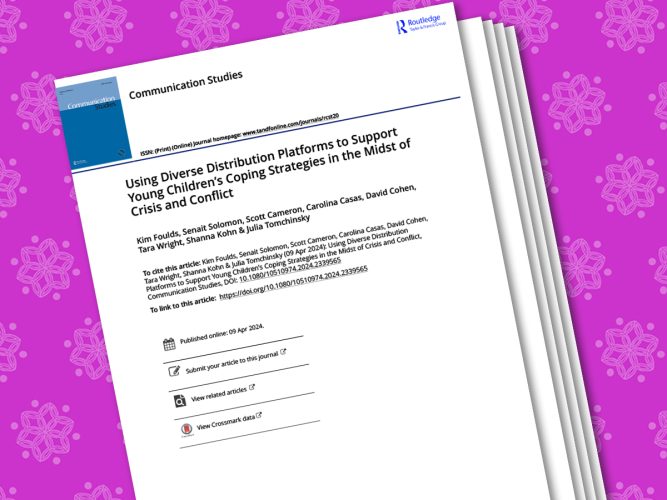
Using Diverse Distribution Platforms to Support Young Children’s Coping Strategies in the Midst of Crisis and Conflict
Educational media must be child-centered, crisis-sensitive, joyful and heartfelt, play-based, inclusive, and aligned with international standards in order to achieve the impact described above.
Sesame Workshop uses our characters, our trusted messengers, narrative storytelling and humor to create engaging and impactful media that speaks to the experience and needs of children and families. Formative research is an essential part of the Sesame Workshop process, ensuring that the content we create is effective and appealing to our target audience.
Research also provides insight into the recommended dosage to support children’s learning from viewing media, across a range of educational goals.
Explore recommended viewing to support learning in the Dose for Impact Guidance Note.
